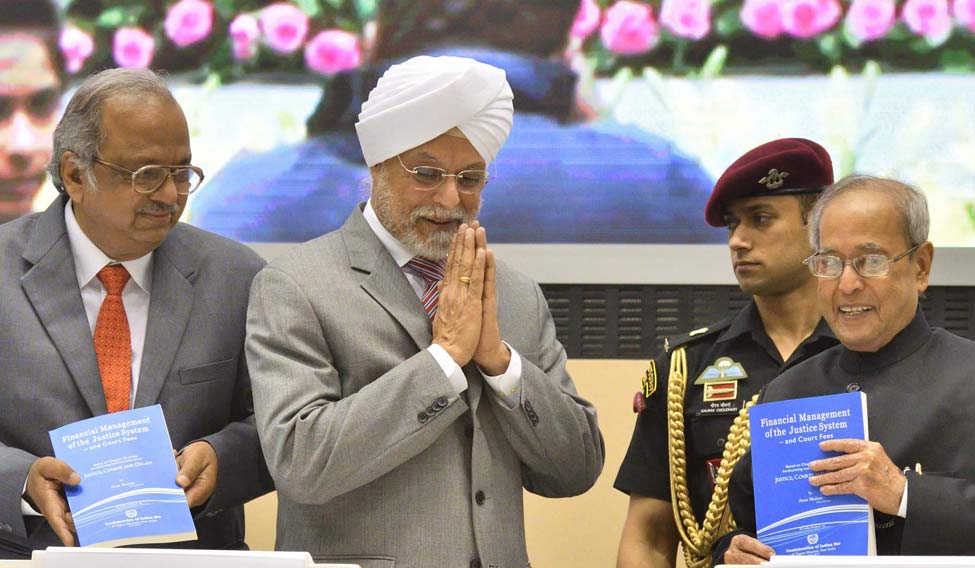When the highest constitutional authorities of India sat together for a few hours to do some loud thinking over India's electoral practices and laws, they had a lot to point out as flaws of the system.
President Pranab Mukherjee pointed out that no party has got 51 per cent of the popular votes in any general election in India, and so whether it was time India moved over from the present first-past-the-post system to something like the list system. “The closest [to 50 per cent of votes that any party won] were when the Congress led by Jawaharlal Nehru won 48 per cent and Rajiv Gandhi's Congress won 48.6 per cent,” he pointed out.
The list system is a method of voting for several candidates, usually members of the same political party, with one mark of the ballot. Electors vote for one of several lists of candidates, usually prepared by the political parties. Each party is granted seats in proportion to the number of popular votes it receives. The system is followed in Germany, Italy, Switzerland, Belgium and the Netherlands.
Mukherjee also pointed out that in the present system of governance, the views of the other parties do not get reflected in governance. Views of other parties do get reflected in coalition governments, but those governments are inherently unstable.
Chief Justice of India J.S. Kehar seemed to be worried about parties seeking votes by promising much in manifestos and then forgetting the promises after the election. He would rather want the political parties to be held accountable on these promises.
He had more issues with manifestos. None of the manifestos of the major parties released during the 2014 general elections indicated any link between electoral reforms and the Constitutional goal of ensuring economic-social justice to the marginalised sections.
Pursuant to the Supreme Court's directions to the Election Commission of India to formulate guidelines against freebies, the latter has been taking action against parties for violation of the model code of conduct, but that's it.
Justice Dipak Misra, the senior-most judge of the Supreme Court, stressed on the need for electoral reforms saying that "purchasing power has no room in elections" and a candidate must bear in mind that "contesting elections is not an investment". Holding of elections has to be "bereft of or sans criminalisation" and people should vote for candidates based on their high moral and ethical values and "not on their competitive demerits".
But it was not all dismal views. Chief Justice Kehar pointed to the progress made by Indian Punjab in achieving socio-economic goals while the Pakistani part of Punjab remains largely feudal. He attributed the progress made by Indian Punjab to the land reforms laws and the industrial disputes act. The two reformatory laws ensured workmen steady income and sustenance from steady jobs.
Moderated by sitting Supreme Court judges and senior advocates, the two-day deliberations on “economic reforms with reference to electoral Issues” is being organised by the Confederation of the Indian Industry, and attended by members of the bar, sitting and retired high court judges, jurists, law teachers and law students.





